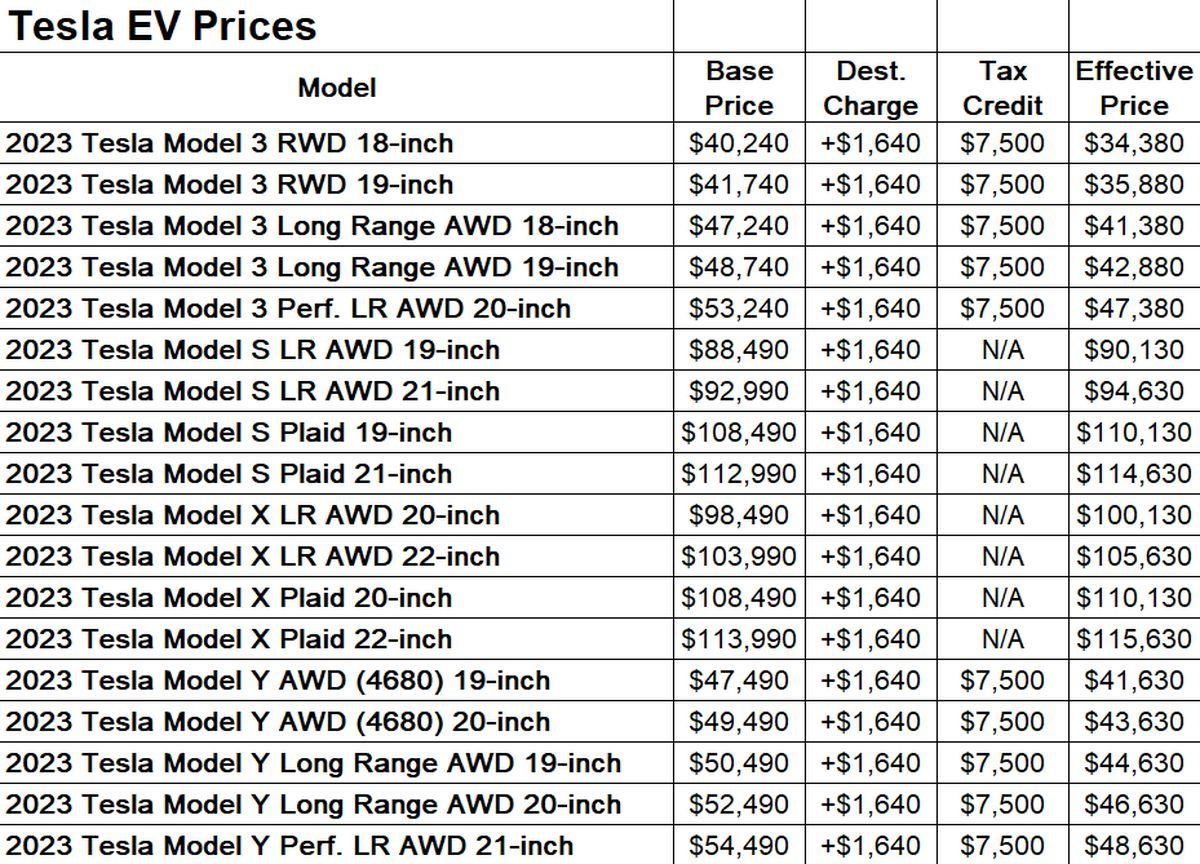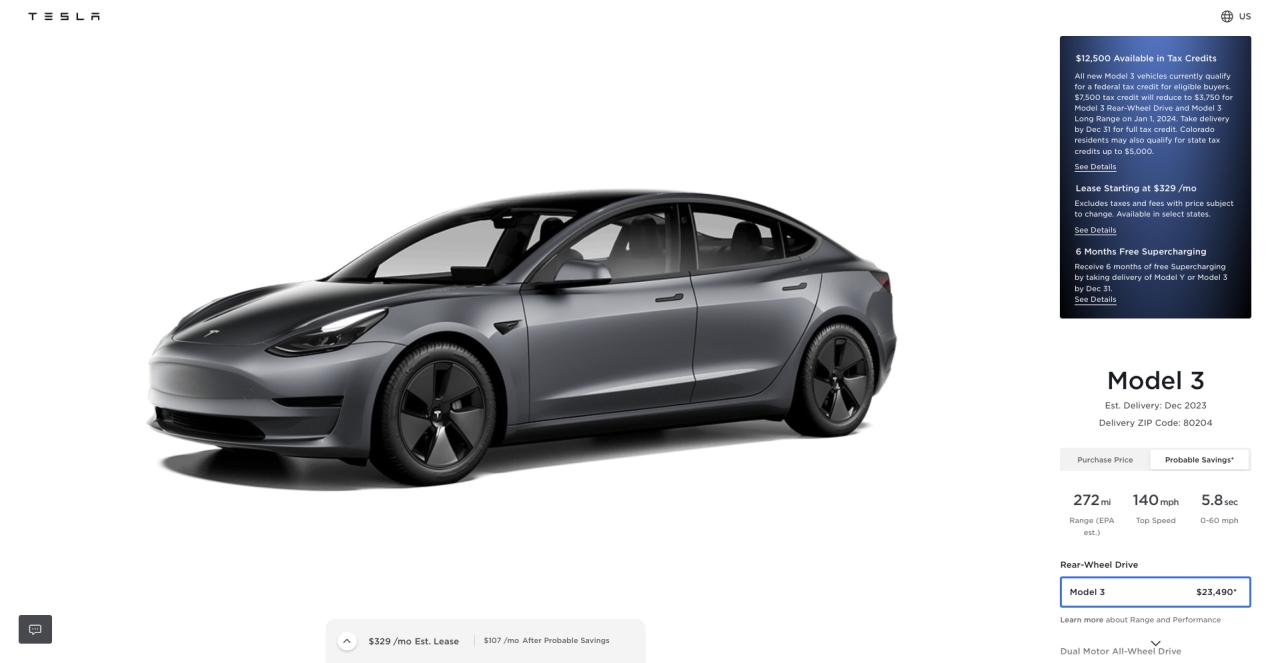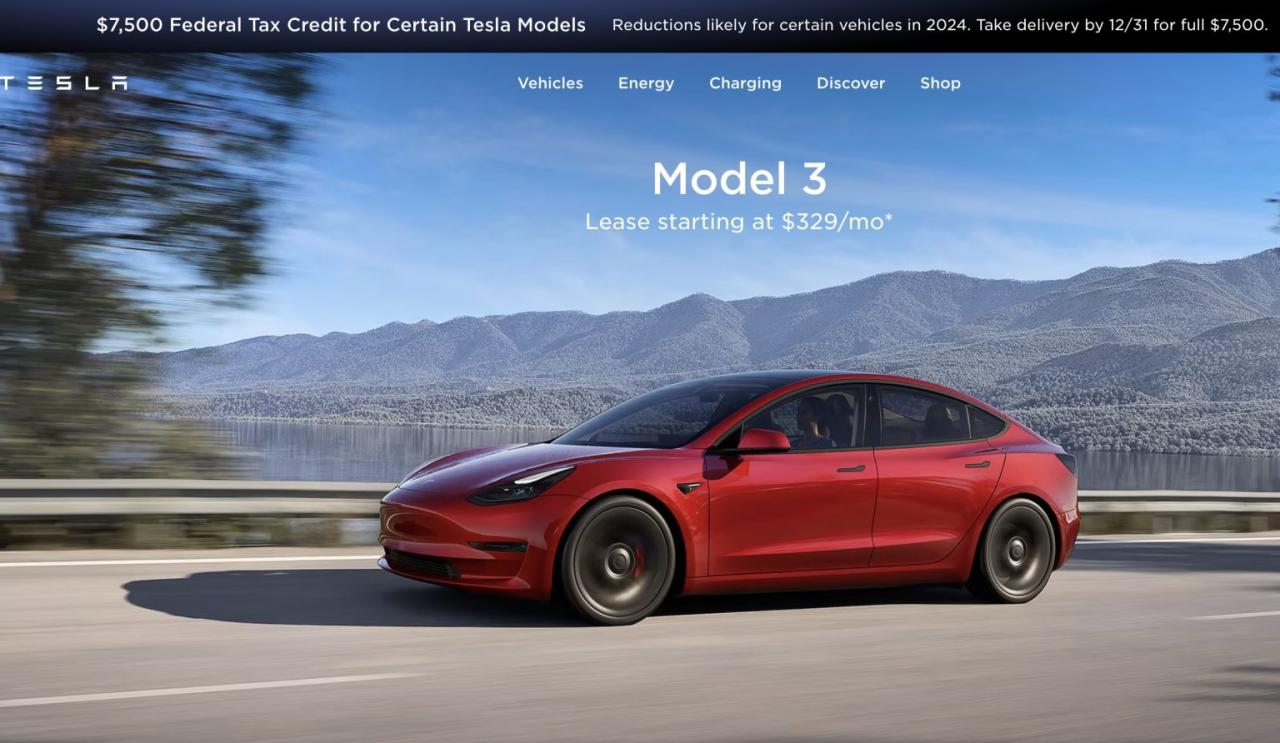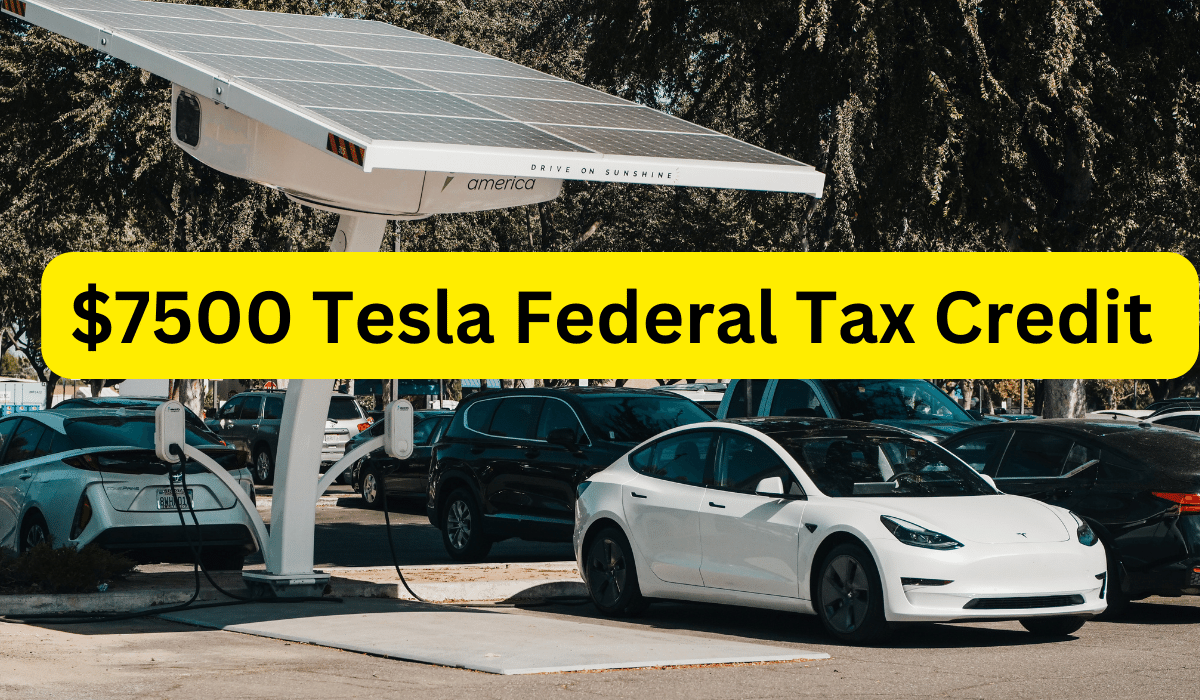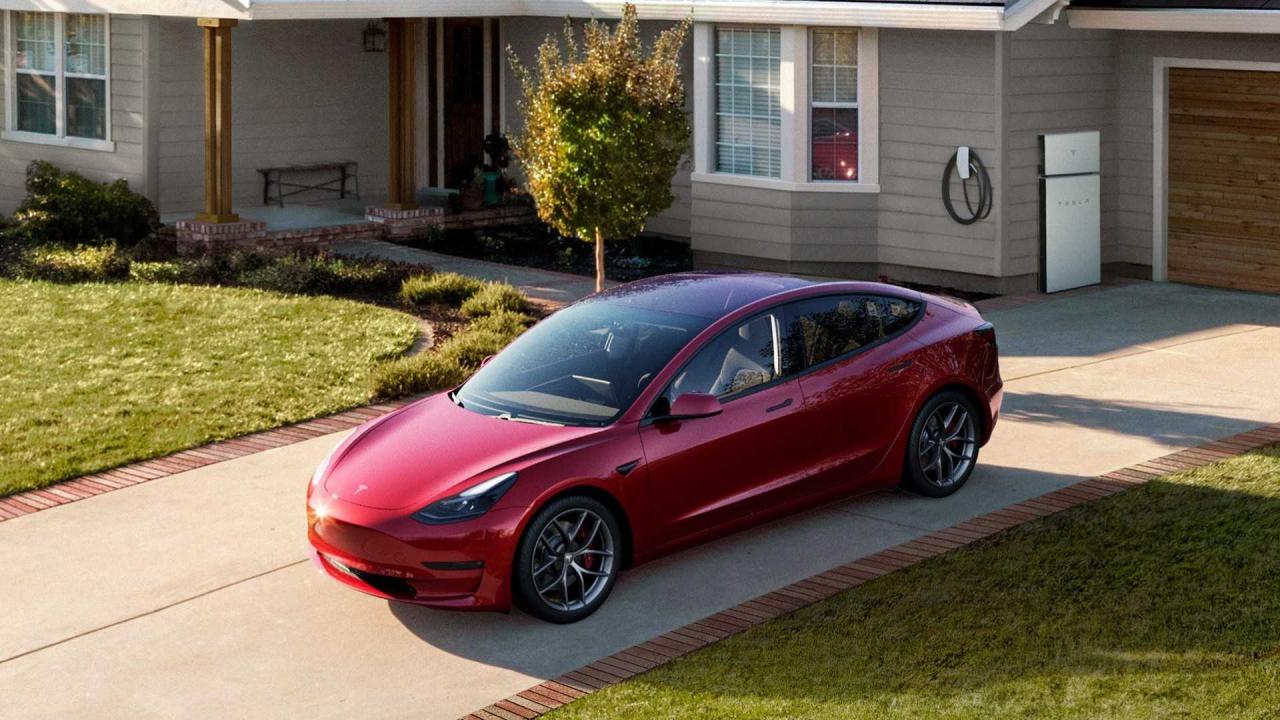The Tesla tax credit 2024 is poised to reshape the automotive landscape, offering enticing incentives for consumers to embrace sustainable transportation. This comprehensive guide delves into the intricacies of the credit, its impact on Tesla sales, and the competitive dynamics within the electric vehicle market.
As the government continues to prioritize environmental initiatives, tax credits for electric vehicles have emerged as a powerful tool to accelerate the adoption of clean energy technologies. The Tesla tax credit 2024 stands as a testament to this commitment, providing a substantial financial incentive for consumers to make the switch to electric driving.
Tesla Tax Credit 2024
The Tesla tax credit is a federal tax incentive that provides a tax break for the purchase of electric vehicles (EVs). The credit is available for both new and used EVs, and the amount of the credit varies depending on the type of vehicle and its battery capacity.
The Tesla tax credit has been a major driver of EV sales in the United States, and it is estimated to have saved consumers billions of dollars on the purchase of EVs. However, the credit is scheduled to phase out in 2023, and it is unclear whether it will be extended beyond that date.
Eligibility Requirements
To be eligible for the Tesla tax credit, the vehicle must meet the following requirements:
* The vehicle must be a qualified plug-in electric drive motor vehicle.
* The vehicle must be purchased new or used.
* The vehicle must be used primarily in the United States.
* The taxpayer must meet the income requirements.
The income requirements for the Tesla tax credit are as follows:
* For single filers, the modified adjusted gross income (MAGI) must be less than $150,000.
* For married couples filing jointly, the MAGI must be less than $300,000.
Timeline
The Tesla tax credit is scheduled to phase out in 2023. The following is a timeline of the phase-out:
* For vehicles purchased in 2023, the credit will be reduced to 50%.
* For vehicles purchased in 2024, the credit will be reduced to 25%.
* For vehicles purchased in 2025, the credit will be eliminated.
Impact on Tesla Sales
The reinstatement of the Tesla tax credit in 2024 is anticipated to have a significant impact on the company’s sales. The credit, which offers up to $7,500 in tax savings for the purchase of a new Tesla vehicle, is expected to make Tesla vehicles more affordable for consumers, potentially leading to increased demand.
Historical Sales Trends
Tesla has experienced consistent growth in sales over the past several years. In 2022, the company delivered over 1.3 million vehicles, a 40% increase from the previous year. The growth has been driven by strong demand for Tesla’s electric vehicles, which offer a combination of performance, technology, and environmental friendliness.
Impact on Consumer Demand
The tax credit is expected to further boost consumer demand for Tesla vehicles. The credit will effectively reduce the purchase price of a new Tesla by up to $7,500, making them more affordable for a wider range of consumers. This is particularly significant in the current economic climate, where consumers are facing rising costs.
Sales Projections
Analysts predict that the tax credit will lead to a significant increase in Tesla sales. Some estimates suggest that the company could sell up to 2 million vehicles in 2024, a 50% increase from 2022. The increased sales will not only benefit Tesla but also the broader electric vehicle market, as it will help to accelerate the adoption of electric vehicles.
Tesla tax credits may expire in 2024, but car enthusiasts can still enjoy high-performance driving with the techart porsche. This modified Porsche offers exceptional speed and handling, making it a thrilling ride. While the tesla tax credit may be coming to an end, there are still many reasons to consider an electric vehicle.
Competition in the EV Market
Tesla faces intense competition in the electric vehicle (EV) market from both established automakers and emerging EV startups. Key competitors include:
- Ford: Ford offers a range of EVs, including the Mustang Mach-E and F-150 Lightning, with generous tax credits available.
- General Motors: GM’s EV lineup includes the Chevrolet Bolt and GMC Hummer EV, with tax credits varying depending on the model.
- Volkswagen: Volkswagen has invested heavily in EVs, offering models like the ID.4 and ID.Buzz, with tax credits available in certain states.
- Rivian: Rivian, a newcomer to the EV market, produces the R1T pickup truck and R1S SUV, with potential tax credits available.
- Lucid Motors: Lucid Motors is a luxury EV manufacturer offering the Air sedan, with tax credits available in some states.
The tax credits offered by Tesla’s competitors vary, but in general, they are comparable to those offered by Tesla. However, some states offer additional incentives or rebates for EVs from specific manufacturers, which can impact the competitive landscape.
Impact on Competitive Landscape
The tax credit may affect the competitive landscape in the EV market in several ways:
- Increased competition: The tax credit may encourage more automakers to enter the EV market, increasing competition and potentially driving down prices.
- Shift in market share: The tax credit may shift market share towards EVs from manufacturers with higher tax credits, such as Tesla and Ford.
- Increased consumer demand: The tax credit may increase consumer demand for EVs, benefiting all EV manufacturers.
Overall, the tax credit is likely to have a positive impact on the EV market by increasing competition, stimulating consumer demand, and accelerating the adoption of electric vehicles.
Government Policy and Regulations
Governments around the world are offering tax credits for electric vehicles (EVs) to encourage their adoption and reduce emissions. The rationale behind these incentives is to offset the higher upfront cost of EVs compared to gasoline-powered vehicles and to make them more affordable for consumers.
The availability and value of tax credits can vary depending on the country or region. In the United States, for example, the federal government offers a tax credit of up to $7,500 for the purchase of new EVs. Some states also offer additional incentives, such as rebates or tax exemptions.
Potential Changes to Tax Credit Policy
The future of tax credits for EVs is uncertain. Some policymakers argue that as EVs become more mainstream and affordable, the need for government incentives will diminish. Others believe that continued support is necessary to accelerate the transition to electric transportation and achieve climate goals.
In the United States, the federal tax credit for EVs is scheduled to phase out once a certain number of vehicles have been sold. The Biden administration has proposed extending the tax credit and increasing its value, but it is unclear whether these proposals will be approved by Congress.
Impact of Government Regulations on the EV Industry, Tesla tax credit 2024
Government regulations also play a significant role in shaping the EV industry. Regulations can cover various aspects, such as vehicle safety, emissions standards, and charging infrastructure.
Stricter emissions regulations, for example, can encourage automakers to invest in the development and production of EVs. Similarly, government investments in charging infrastructure can make it easier for consumers to own and operate EVs.
With the Tesla tax credit set to expire in 2024, potential buyers may want to consider taking advantage of the incentive before it’s gone. The tax credit can save buyers up to $7,500 on the purchase of a new Tesla vehicle.
For those who are looking for a truly immersive automotive experience, they may want to visit the porsche experience center , where they can get behind the wheel of a Porsche and experience the thrill of driving on a track.
While the Porsche experience center may not offer the same financial incentive as the Tesla tax credit, it does provide an unforgettable experience that is sure to leave a lasting impression. Despite the expiration of the Tesla tax credit in 2024, there are still many reasons to consider purchasing a Tesla vehicle, including its impressive performance, advanced technology, and sleek design.
Supercars
Supercars are a class of high-performance sports cars that are characterized by their exceptional speed, acceleration, and handling. They are typically produced in limited numbers and are often associated with luxury and exclusivity.
Some of the most popular supercar models include the Ferrari 488 GTB, Lamborghini Aventador, McLaren 720S, and Porsche 911 Turbo S. These cars are known for their powerful engines, sleek designs, and advanced technology.
Differences between Supercars and Other Vehicles
Supercars differ from other types of vehicles in several key ways:
- Performance: Supercars are designed to deliver exceptional performance, with high horsepower and torque figures, as well as advanced suspension and braking systems.
- Design: Supercars are often designed with a focus on aerodynamics and aesthetics, resulting in sleek and eye-catching exteriors.
- Exclusivity: Supercars are typically produced in limited numbers, making them more exclusive and desirable than other types of vehicles.
- Price: Supercars are typically more expensive than other types of vehicles, due to their high performance and exclusivity.
Ultimate Conclusion
The Tesla tax credit 2024 is a transformative policy that has the potential to reshape the automotive industry. By providing significant financial incentives for consumers to purchase electric vehicles, the credit is expected to drive a surge in Tesla sales and accelerate the adoption of sustainable transportation. As the government continues to prioritize environmental initiatives, tax credits for electric vehicles are likely to remain a key policy tool in the years to come.
Helpful Answers: Tesla Tax Credit 2024
What are the eligibility requirements for the Tesla tax credit 2024?
To qualify for the Tesla tax credit 2024, consumers must purchase a new Tesla vehicle that meets certain criteria, including a maximum MSRP and battery capacity requirements. Additionally, the vehicle must be used primarily for personal purposes and meet other eligibility guidelines set forth by the IRS.
How much is the Tesla tax credit 2024?
The Tesla tax credit 2024 provides a federal tax credit of up to $7,500 for the purchase of a new Tesla vehicle. The amount of the credit is based on the vehicle’s battery capacity and MSRP.
How long will the Tesla tax credit 2024 be available?
The Tesla tax credit 2024 is currently scheduled to expire on December 31, 2024. However, there is potential for the credit to be extended or modified in the future.
